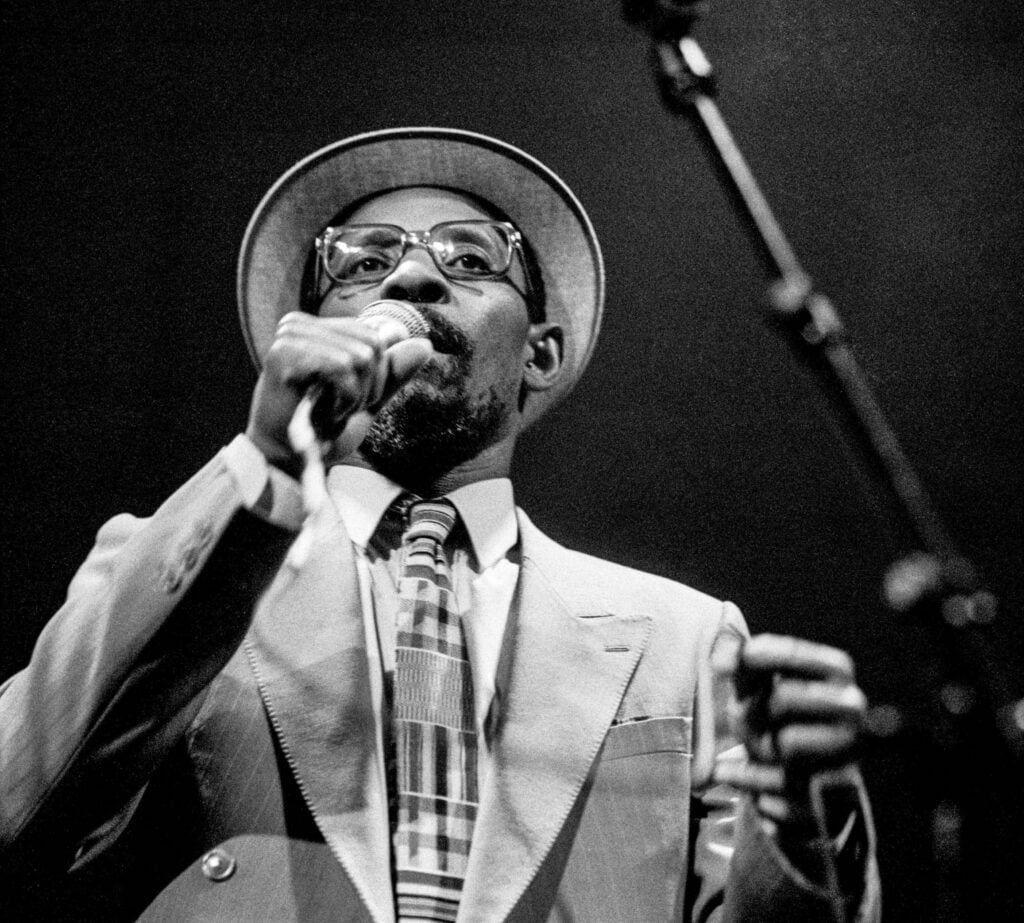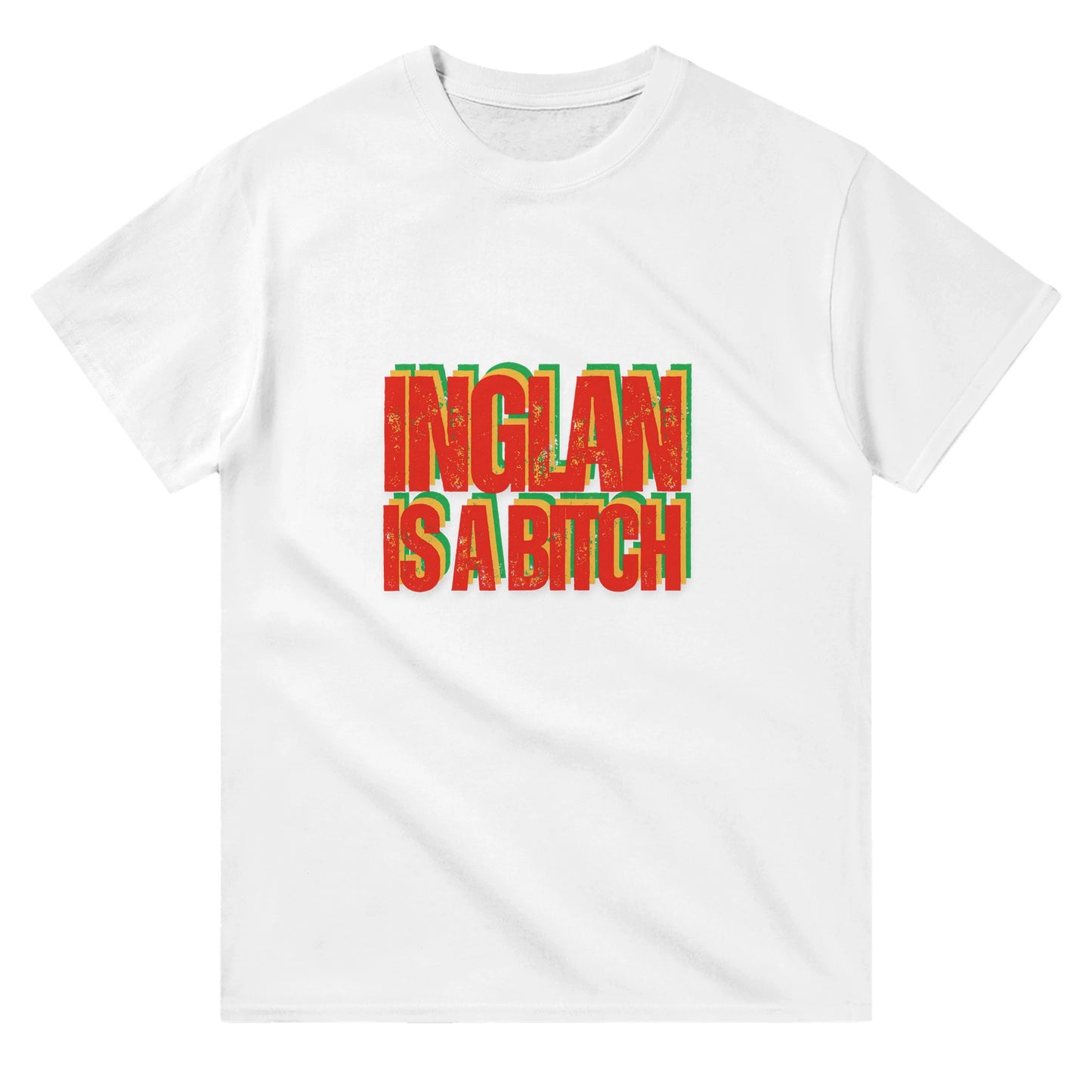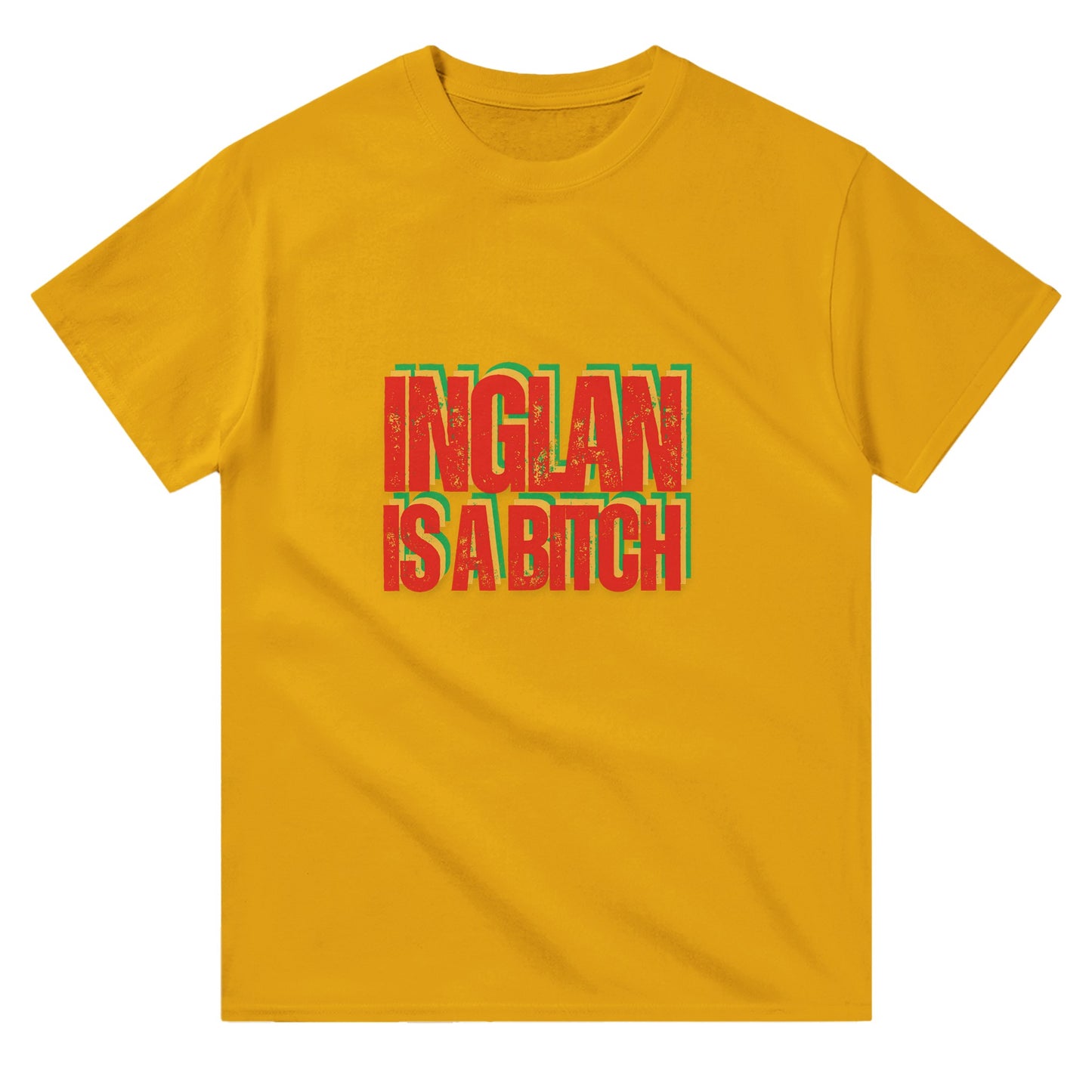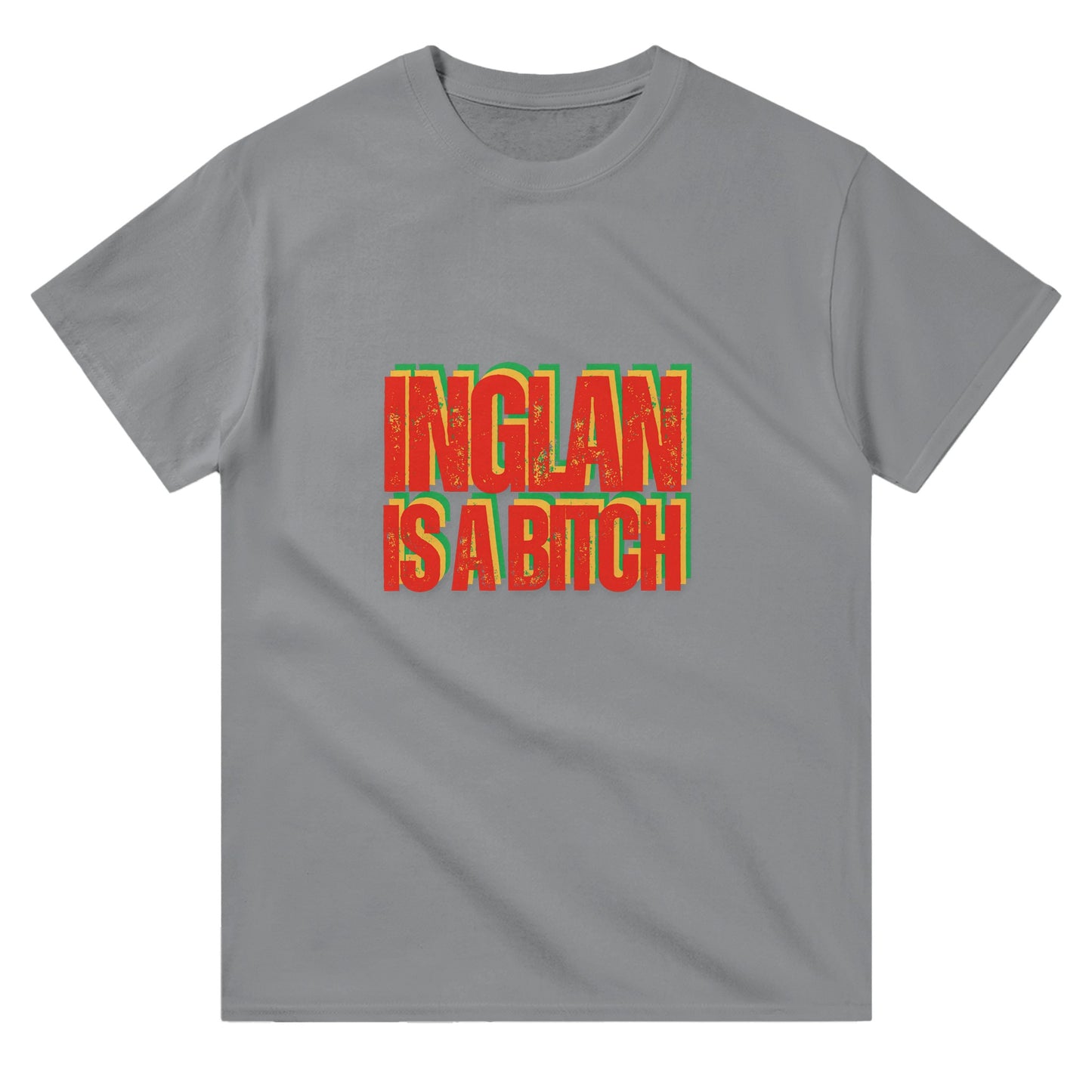
Inglan Is a Bitch: Linton Kwesi Johnson’s Defiant Anthem of Immigrant Struggle
When Linton Kwesi Johnson’s Inglan Is a Bitch hit the airwaves in 1980, it was more than just a song; it was a declaration of defiance and a sharp critique of Britain’s post-colonial reality. Johnson, a Jamaican-born poet and musician, merged the rhythmic pulse of dub reggae with political poetry, giving a voice to the voiceless: Black and Caribbean immigrants facing systemic racism, economic inequality, and social exclusion in Margaret Thatcher’s Britain.
The Cultural Context: Britain in the 70s and 80s
To understand Inglan Is a Bitch, you have to grasp the socio-political climate of the UK during the late 1970s and early 1980s. It was a period of intense political turbulence, marked by economic downturns, a rise in unemployment, and growing racial tensions. Immigration from former colonies, particularly from the Caribbean, had surged in the decades following World War II, as Britain sought to rebuild its economy. But instead of finding opportunity, many immigrants faced marginalisation and overt racism from institutions and the public alike.
The National Front, a far-right political group, was gaining traction with its anti-immigrant rhetoric, while Black communities in cities like London, Birmingham, and Manchester were regularly subjected to police harassment. The infamous “Sus laws” allowed police to stop and search individuals based on suspicion alone, disproportionately targeting Black youths. The 1976 Notting Hill Carnival riots and the uprisings in Brixton, Toxteth, and other urban centres in the early 1980s were a direct result of these simmering tensions.
Amidst this, Margaret Thatcher's Conservative government came into power in 1979, doubling down on austerity measures and promoting an anti-immigration stance. Her infamous comment that Britain was being "swamped" by people from other cultures reflected the prevailing attitudes of the era. For the Caribbean and Black British communities, this era was one of exclusion, disenfranchisement, and deep frustration. Inglan Is a Bitch captured this feeling perfectly.
The Song: A Defiant Cry Against Injustice
Inglan Is a Bitch is a stark, unfiltered account of the immigrant experience. Over a minimalistic yet infectious dub rhythm, Johnson delivers a biting narrative about the daily indignities faced by Black immigrants. His patois-laced spoken word poetry paints vivid pictures of low-paid, menial work, and the alienation of living in a country that offers little opportunity and even less respect.
The song's title alone—delivered with a blunt, unapologetic force—sets the tone. It’s not just a personal gripe; it’s a collective sentiment felt by thousands of immigrants whose hopes of finding a better life in Britain had been crushed by discrimination, poverty, and exploitation. Johnson’s raw delivery is laced with irony, reflecting the bitter disappointment of immigrants who came to Britain only to be trapped in dead-end jobs. The lyrics are painfully direct:
“Mi noh get no pay, mi noh get no work,
Mi layin' inna mi bed, ah mi jus’ start fi t'ink
Inglan is a bitch.”
There’s an undeniable anger beneath the surface of the song, but it’s also laced with a dark humour. Johnson turns the pain of exclusion into a powerful statement, using wit to mask the deep frustrations of his community. His delivery is rhythmic, almost hypnotic, as it echoes the musical traditions of Jamaican dub, while being firmly rooted in the realities of British life.
Critical Reception: A Political and Cultural Landmark
At the time of its release, Inglan Is a Bitch was met with mixed reactions. In Britain’s mainstream media, the song didn’t receive the airplay or coverage it deserved. The rawness of its lyrics, its open critique of British society, and its use of patois made it a difficult listen for the conservative, predominantly white establishment. But for Britain’s Black and Caribbean communities, it became an instant anthem, articulating feelings that had been simmering for years.
Johnson’s fusion of dub reggae and poetry was groundbreaking. His work was part of the larger movement of dub poetry—a genre that combined Jamaican rhythms with socially conscious lyrics, often delivered in spoken word form. Alongside other dub poets like Mutabaruka and Oku Onuora, Johnson was creating a new kind of musical and poetic expression, rooted in resistance.
Music critics who understood the cultural and political implications of the song hailed it as a bold statement. It captured the grim realities of immigrant life in Britain without romanticising the struggle. Johnson wasn’t singing about dreams of overcoming hardship; he was detailing the daily grind of being marginalised and the bitterness of broken promises.
Over time, the song has grown in stature, becoming recognised as a seminal work in both British music and Black British history. It’s been covered by artists, sampled in tracks, and analysed by scholars for its raw, unapologetic truth-telling.
Legacy, Relevance, and Black History Month
Decades after its release, Inglan Is a Bitch remains as relevant as ever. The themes of systemic racism, economic disparity, and the struggles of immigrants resonate strongly in today’s socio-political climate. As debates about immigration, race, and national identity continue to dominate discourse in both Britain and across the globe, Johnson’s anthem of defiance stands as a reminder of the need for resistance and solidarity.
During Black History Month, Inglan Is a Bitch serves as a crucial touchstone for understanding the lived experiences of Black immigrants in Britain. It underscores the importance of recognising the contributions of Black Britons to the country’s cultural and political landscape, and the struggles they’ve faced in a society that often marginalised them. It’s not just a song, but a reflection of history, challenging the listener to engage with the uncomfortable truths about race and class in the UK.
In the era of Brexit, increasing xenophobia, and ongoing racial injustice, Inglan Is a Bitch serves as both a historical document and a call to action. It speaks to anyone who has ever felt marginalised or pushed to the side, whether due to race, class, or background. And in its rebellious, unflinching critique, it continues to inspire new generations to challenge the status quo.
For a brand like Slogun, which prides itself on blending pop culture and politics, the spirit of Inglan Is a Bitch is something to channel. It’s a reminder that music, like fashion, is a form of resistance—a way to speak truth to power, wear your beliefs on your chest, and push back against a world that too often tries to silence you. Black History Month is an opportunity to celebrate that defiance, honour the struggle, and keep pushing forward.
For discounts on our Inglan is a Bitch t shirt or any other designs visit WeThrift here.
Slogun
Inglan Heavyweight Unisex Crewneck T-shirt
Share










Reggae tees
-
Iron Shirt Heavyweight Unisex Crewneck T-shirt
Regular price £29.00 GBPRegular priceUnit price / per -
Inglan Heavyweight Unisex Crewneck T-shirt
Regular price £29.00 GBPRegular priceUnit price / per -
Draw Your Brakes Heavyweight Unisex Crewneck T-shirt
Regular price £29.00 GBPRegular priceUnit price / per -
Dillinger Heavyweight Unisex Crewneck T-shirt
Regular price £29.00 GBPRegular priceUnit price / per





